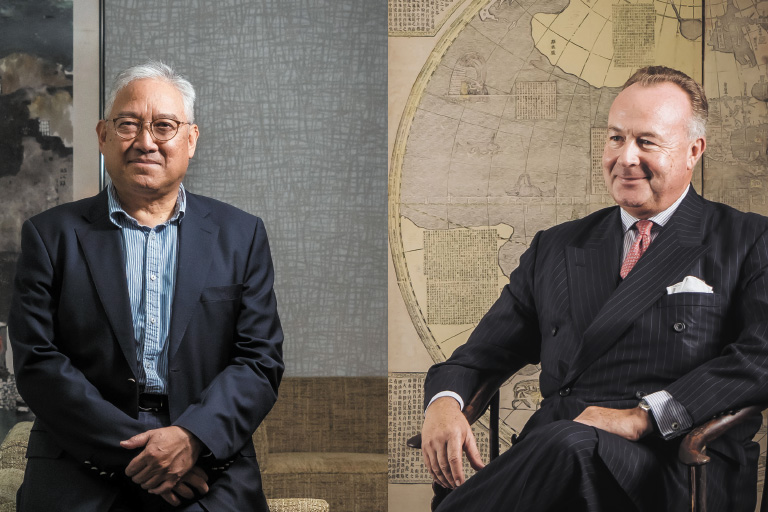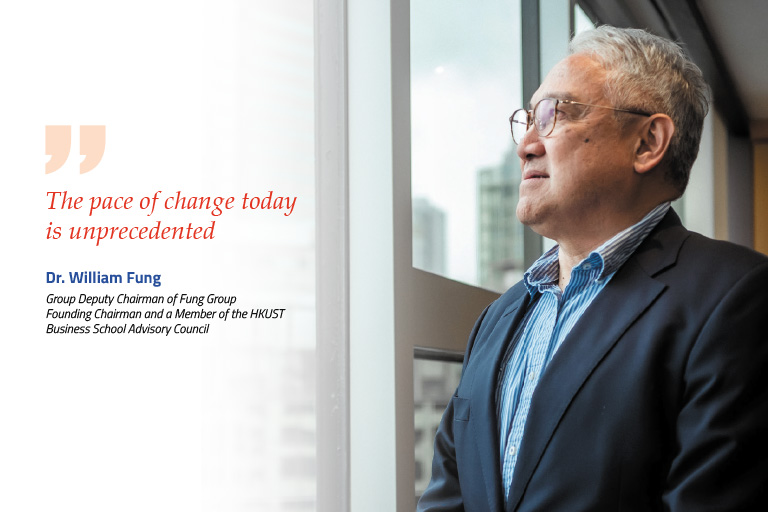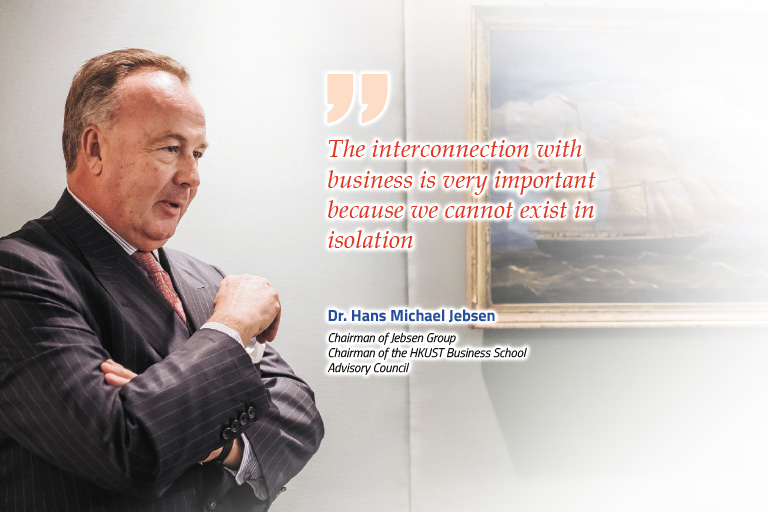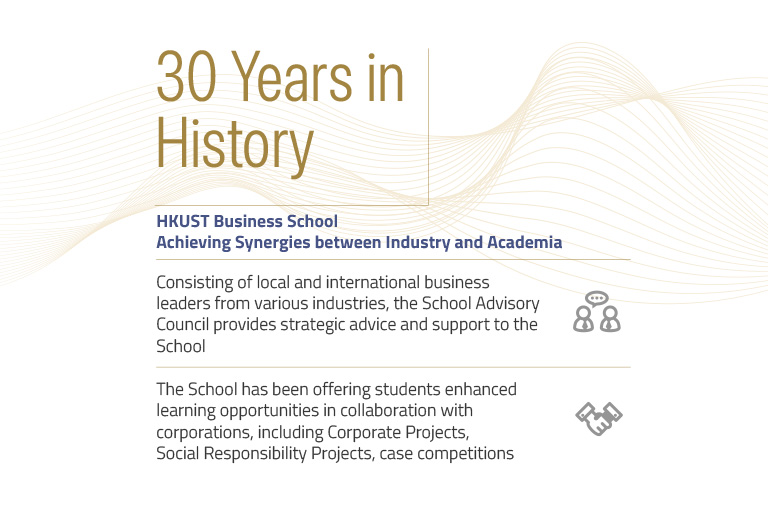
Business education must provide future leaders with the capacity to deal with change, business leaders say.
Business education plays a key role in shaping future leaders who will be ready to take the helm in a fast-changing world. That was one of the key messages given by Dr. Hans Michael JEBSEN and Dr. William FUNG during the 30th anniversary celebrations of the HKUST Business School.
Business Education is no longer simply about giving students a toolbox of academic knowledge and sending them out into the world, says Dr. Jebsen, who serves as Chairman of Jebsen Group, and is also the Chairman for the HKUST Business School Advisory Council. Today, it’s giving students practical skills to navigate the many changes which define the economy and society in general.
Citing both the COVID-19 pandemic and recent geopolitical tensions, he notes that economies are becoming more chaotic, and technology has made them less predictable. So business education must focus on more than how to run a business. It must show students how to manage the business of life. To be successful in this economy, leaders must be innovative and able to deal with disruption, and they must stay ahead of the curve.
“We can’t separate the various faculties from reality. Reality is holistic and a vibrant society hinges on economic prosperity, which hinges on businesses doing well,” says Dr. Jebsen.
Preparing for a new world

As such, business education must help prepare students for a world that is remarkably different from 50 years ago. Businesses today operate in a world marked by continuous change, and education must take account of the impact of technology on societies, economies, and businesses.
Dr. William Fung, Group Deputy Chairman of Fung Group and the founding Chairman, and a member of the HKUST Business School Advisory Council, says that it’s not just change itself that business leaders have to contend with, it’s the speed that such changes take place.
“The pace of change today is unprecedented. People’s ability to cope with that is one of the biggest challenges,” he says. “People need to internalize the new needs to be accustomed to the new environment. That can be a problem.”
For this reason, business education must foster an ability to adapt. Leaders must know when to take advantage of change, he says. “It’s not a specific skill like marketing and accounting,” Dr. Fung emphasizes, stressing that it is about developing a mental capacity to embrace change rather than resist it.
New solutions

Dr. Jebsen couldn’t agree more, noting this has always been the challenge for business people. “We tend to only see the stone in our shoe as we walk, but we should be looking at the mountain range ahead of us,” he says. “When all of life is a challenge, there are also huge opportunities. So what are the new solutions?”
Universities hold the key to opening the minds of people to look beyond their immediate tasks and take a holistic approach to problem solving. Due to COVID-19 and the impact of geopolitics on economies, mastering the skills to cope with uncertainty and change has become more important than ever. So how can universities do this?
“How do you teach people to become leaders and how to be entrepreneurial? Knowledge gives you a better chance at both, but you need a more interactive type of business teaching revolving around case studies,” says Dr. Fung.
He notes that the idea of simply being lectured to is out of date, as today’s students need exposure to the real world. Adding to that, Dr. Jebsen says that universities also have a duty to provide a safe space for inquisitive minds to act without a fear of failure. “What is the best and the right thing to do? Is there more than one alternative?” he says.
Synergy between business and academia
Business educators also need to create more synergies between industry and academia. In higher education, students who embark on this path usually want to move the needle, says Dr. Jebsen. In some cases, students come to the classroom with extremely innovative ideas that could be at the forefront of new developments in areas like finance or green technologies. Businesses would do well to capitalize on such ideas.
“The interconnection with business is very important because we cannot exist in isolation,” Dr. Jebsen says. “If we are a business school, we must talk to businesses and interact with them.” There are many ways to do this, including case studies and internship opportunities for students.
Dr. Fung says there needs to be more participation in such schemes from businesses. “There are too few businesses participating in shaping the course of business education. We try to convince them to think about business education as a way to prepare students to transition from academic knowledge to the practical application of that knowledge. But without business people telling us what skills are needed, how can we best prepare them for the real world?”
Business schools must reach out to the business community to promote collaborative thinking, he says. Schools in cities like Hong Kong should also see themselves as a connector between the East and the West. Riding on Hong Kong’s own unique history, business schools have a unique opportunity to bridge the divide.
“We have many students from the West who want to learn about Asia, and all the newly resurgent business students in China want to look beyond the Chinese market. Hong Kong is a stepping stone for that,” Dr. Fung says.
Industries and business educators should reflect on the new realities and bridge the divides to ensure that Hong Kong business leaders continue to connect Hong Kong to the rest of the world via education. “At HKUST, we should celebrate what we have achieved, while considering what we can achieve during the next 30 years,” Dr. Fung says.




